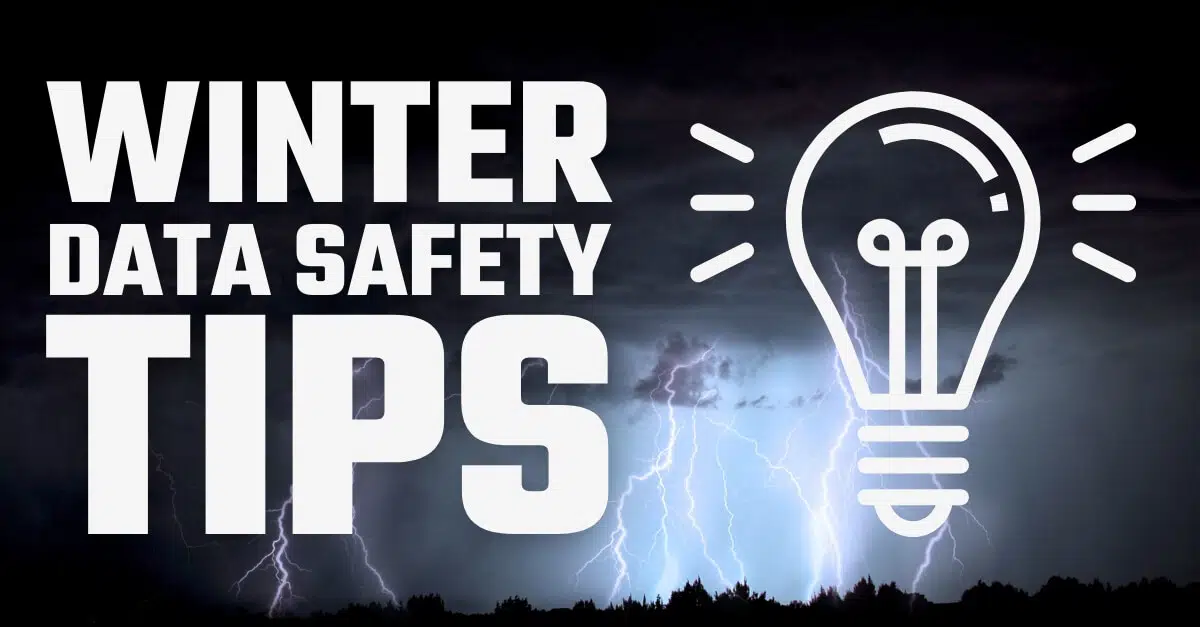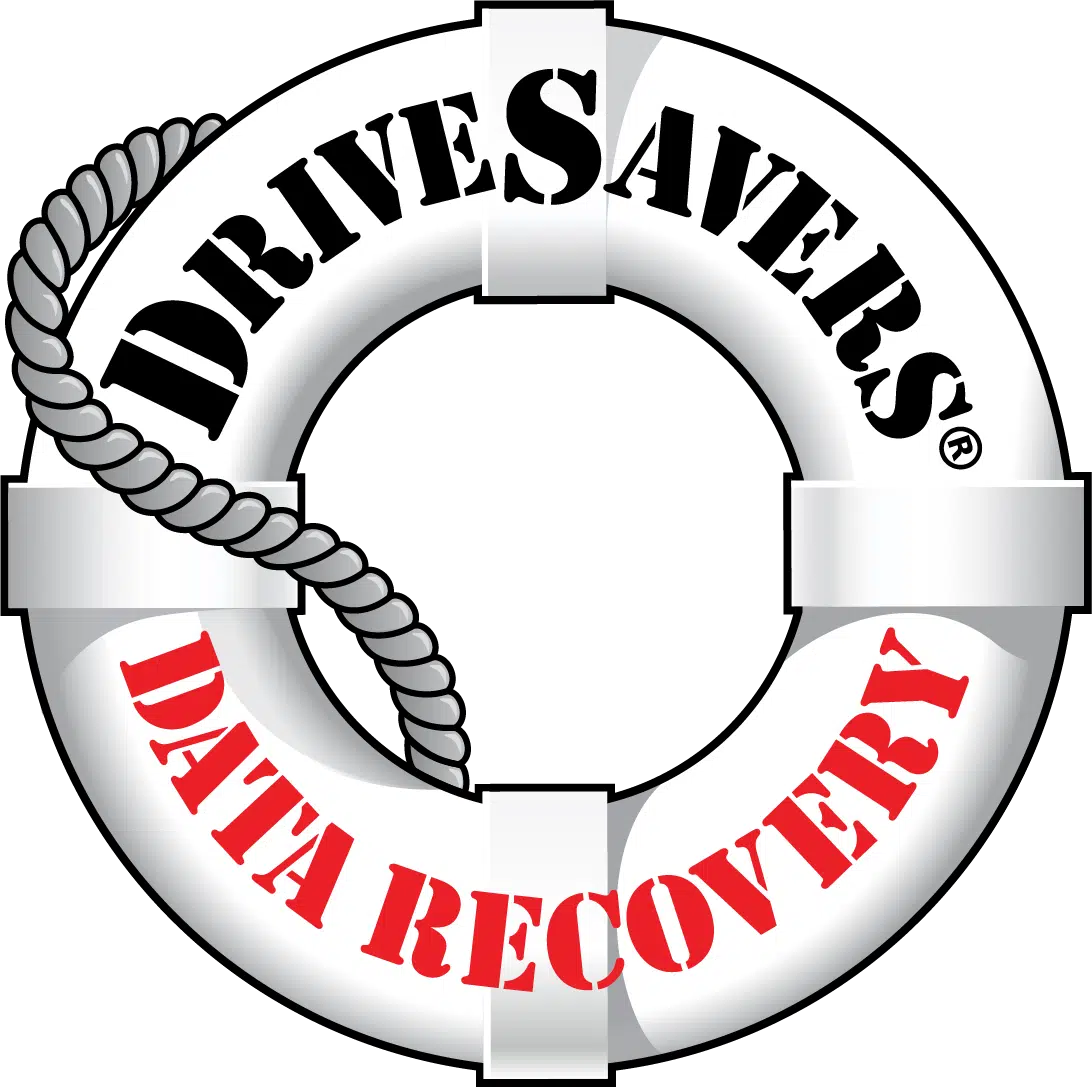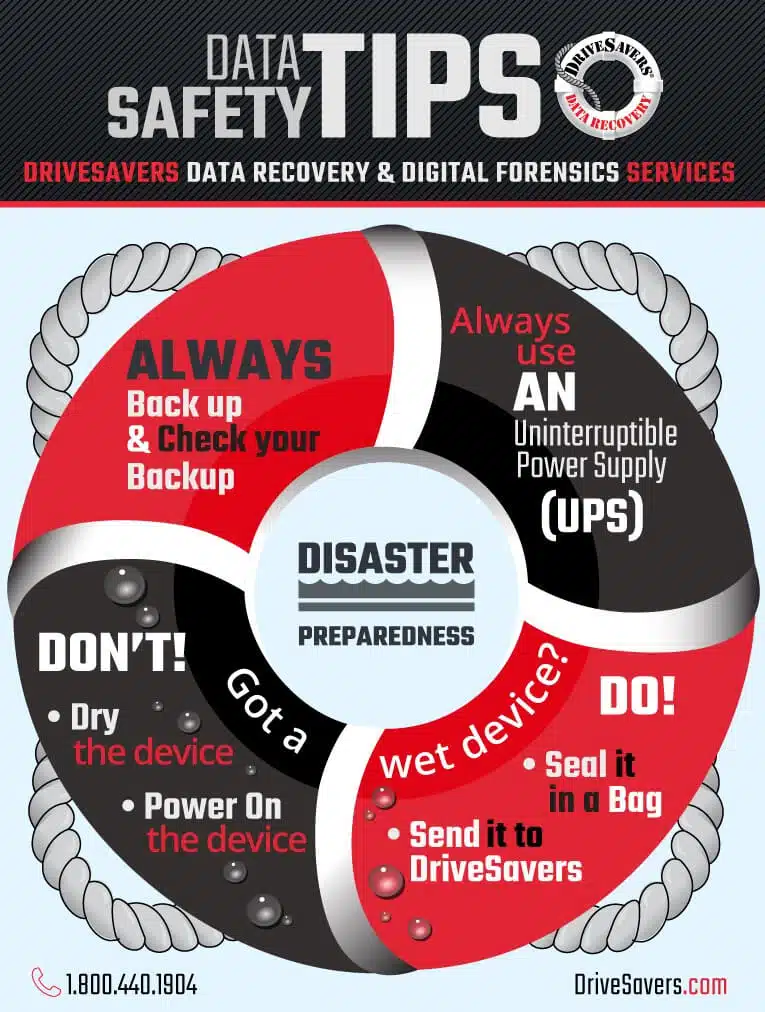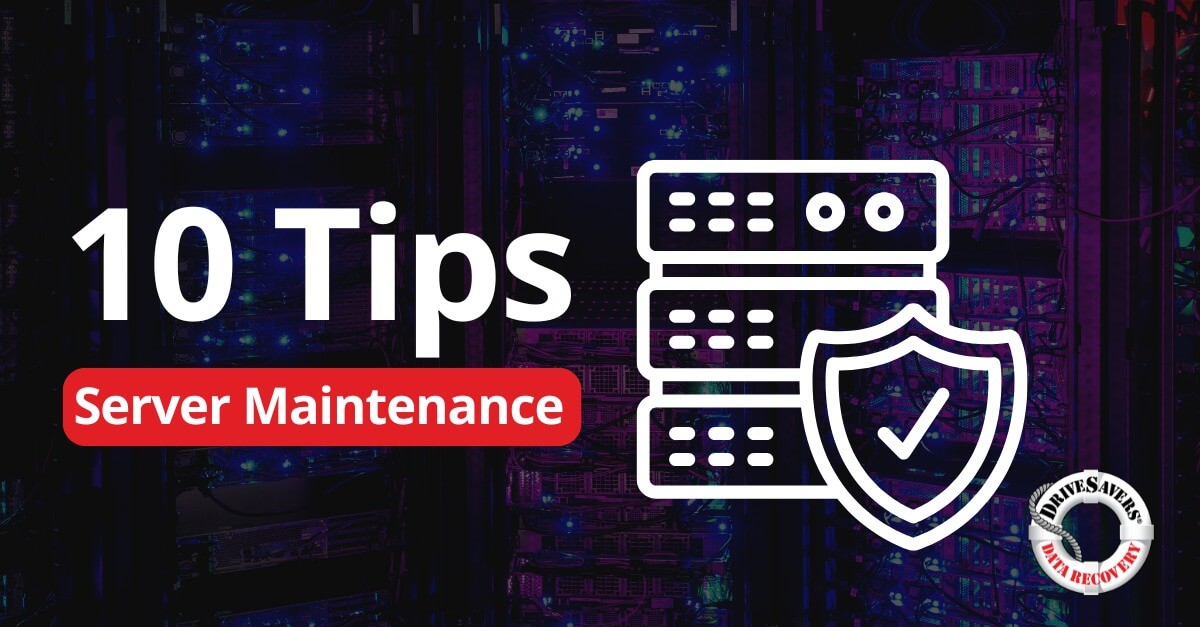How the data recovery experts at DriveSavers plan to retrieve $750m in Bitcoin from a hard drive buried in landfill since 2013.
Safeguard Electronic Data Before and After Winter Storms

When severe weather threatens your home, school, or business this winter, don’t be caught unprepared.
As rain clouds gather, the resulting storms, floods, power outages, and other damaging impacts of bad weather pose a very real threat to any unprotected data storage device. When storms generate massive power outages and widespread destruction, only the best prepared are able to pick right up where they left off.
Protect Your Electronic Data
Be prepared to survive the threat by maintaining a current backup of documents, pictures, financial records, videos, databases, email, music, and anything else that’s important.
Whether your files are kept on a smartphone, digital camera, flash drive, tablet, laptop, desktop, or larger computer system, the only real protection comes from having backed up your data.
Redundant Backups
Invest in data backup software and remember to back up regularly. This is especially important if you reside in a storm-prone region. Backing up can help prevent data loss even if a device is beyond repair, especially redundant backups, in which the same data is stored in different locations—one working copy on the device that you use, one backup copy on a local device such as an external hard drive and one backup stored in the cloud or other networked device.
Unplugged Power
If experiencing a heavy storm that may affect electricity, shut off the power to each device and unplug them from electrical power outlets. All hardware such as desktop computers, laptops, printers, scanners, and smartphones should be unplugged from power sources to protect them from damaging power spikes and surges.
When unplugging isn’t an option, a high-quality surge protector or uninterruptible power supply (UPS) should be used. Be sure to test these devices regularly in order to maintain optimal effectiveness.
Prevent Water Damage
Electronic devices should be enclosed in plastic bags or watertight containers. Keep devices off the floor to prevent water damage from flooding.
Head for High Ground
If you live in an area that may be subject to flooding, make sure to keep your computer equipment in the highest level of the room or building. Nothing should be left at ground level where floodwaters may flow. Keep your backup in an easily accessible place so if flooding is imminent you can quickly grab your backup and flee to safety.
Never attempt to turn on a device that is wet or physically damaged.
If you believe your device is damaged, contact DriveSavers right away, call 800.440.1904 at any time for assistance.





